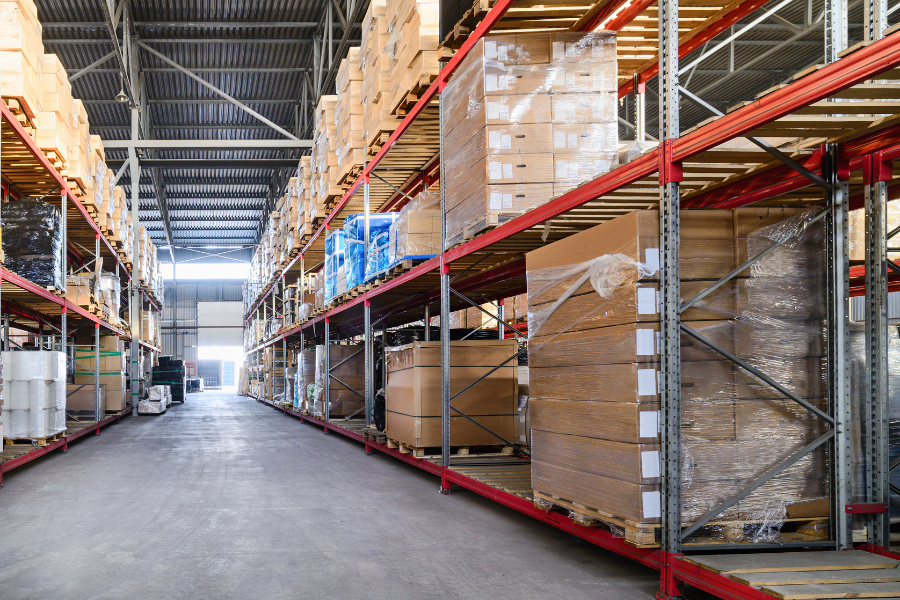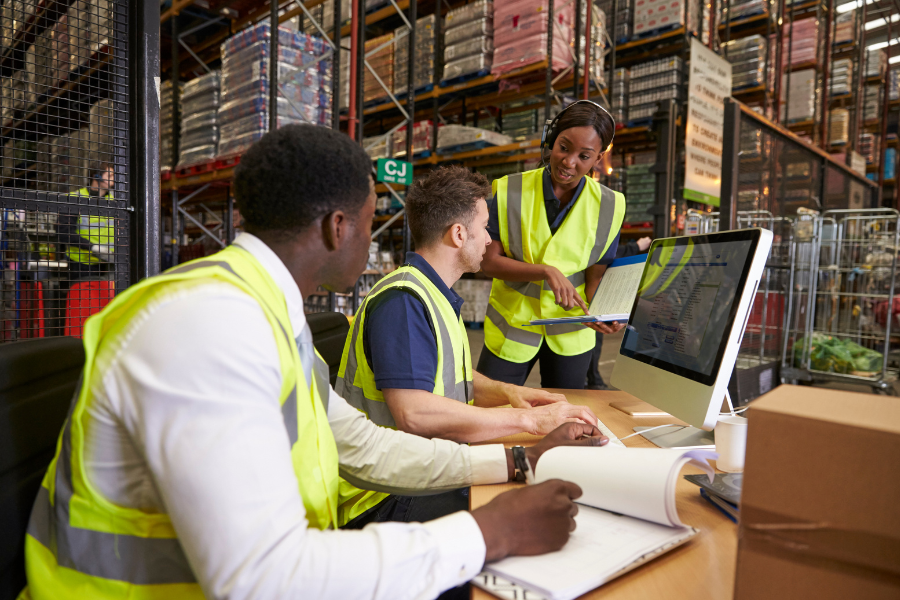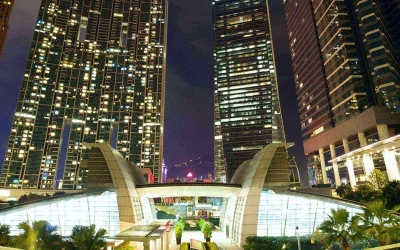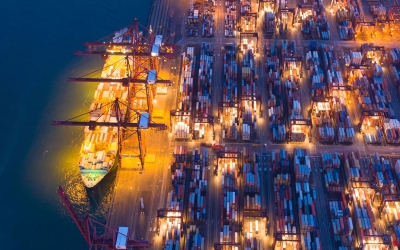The International Executive MBA is designed to solve the most critical challenges faced by leaders like you in a globalised and constantly changing business env
 Blog
BlogLogistics in business: all you need to know
When you place an order and in less than 24 hours it is at home; the product packaging is intact; the products travel halfway around the world in good hygienic and sanitary conditions; the supermarket is stocked or you ask if a product will be available in your city, there is good logistics behind it. These are just a few examples of how users perceive this area, but do they really know what business logistics is and how it works?
Find out more about a booming sector with a high demand for specialised professionals. In addition, we tell you about the main trends, typologies and the future forecast for this area. Read on to find out all about current logistics in business and, if you want to join or improve your position, study the ENAE Master's Degree in Logistics and Operations Management (we'll tell you why in detail later).
What is logistics in a company and what is it for?
Logistics should not be confused with the supply chain, although both terms are closely related. While logistics focuses mainly on transport and storage activities, the supply chain encompasses a broader concept that includes from the procurement of raw materials to the production and delivery of the product at the final destination.
We understand the former to refer to the process of planning, implementing and controlling the efficient flow and storage of goods, services and information from the point of origin to the point of consumption, with the objective of satisfying customer needs. Therefore, it is not just ‘transport’ either, although it is a critical function, logistics encompasses many more areas and processes.
In short, logistics serves to ensure that the right products arrive at the right place, at the right time and in the right condition, ensuring both customer satisfaction and optimisation of the company's resources.

Areas and functions of logistics
As we have mentioned, this sector encompasses different areas and processes within organisations such as inventory management, transport, storage and distribution. All these processes are aimed at maximising efficiency and minimising costs within the supply chain. Below we list the four areas within a company's logistics:
- Procurement logistics: this is about acquiring and managing the materials to carry out production. Planning and procurement are included in this area.
- Production logistics: this is concerned with securing the materials needed for the manufacturing process.
- Distribution logistics: covers all activities related to the delivery of the finished product to the customer, from warehousing to transport and final delivery.
- Reverse logistics: responsible for managing returned products regardless of the reason (recycling, repair or return).
On the other hand, within these areas, professionals develop functions such as inventory management to control the quantity and type of products, order management where customer orders are processed to ensure deadlines are met and that the products arrive in the right condition, or information management where technologies such as Big Data or Artificial Intelligence play a leading role in efficient management.
The future of business logistics: where are we heading?
Business logistics is in full transformation, driven by technological advances, the growing concern for sustainability and the need to train professionals with more specialised skills. The future of logistics is shaping up to be a dynamic and innovative environment that will require companies to adapt quickly to new changes and opportunities. Below, we explore the three key axes that will define this future: technology, sustainability and the education of professionals.
Technology as a driver of change: the rise of logistics 4.0
Technologies have reached all areas of our lives and this, in the subject that concerns us, has given rise to what is known as Logistics 4.0, where automation, data analysis and artificial intelligence play a central role. Among the main technologies that are revolutionising the sector, the following stand out:
- Artificial Intelligence: enables optimised decision-making in real time, from strategic planning to optimising transport routes. In addition, companies can use automated systems to manage inventories and anticipate potential disruptions in the supply chain at minimum cost.
- Internet of Things (IoT): Companies can monitor the status and location of products in real time. IoT also enables full traceability, improving transparency and efficiency in the management of the logistics process.
- Blockchain: this technology offers greater security and transparency in logistics transactions and processes, facilitating the tracking of products from their origin to their final destination. It is especially relevant in international logistics and complex supply chains.
- Robotics and automation: today we can already see the use of robots and automated systems in logistics centres to streamline product handling, reducing errors and optimising processing times. This will continue to evolve to achieve a greater capacity to respond to market demands quickly.
The future of logistics will be shaped by the ability of companies to integrate these technologies and take advantage of the benefits they offer. Digitalisation will be essential to gain competitiveness and improve operational efficiency.

Sustainability: an imperative in the logistics of the future
Sustainability is no longer an option, but a necessity for companies that want to be competitive. The logistics sector is increasingly committed to reducing environmental impact and improving energy efficiency. At the same time, environmentally conscious consumers are increasingly demanding more responsible practices from companies. Some of the main sustainability trends in logistics include:
- Green logistics: these initiatives seek to reduce CO₂ emissions through the optimisation of transport routes, the use of electric vehicles and the implementation of more energy-efficient solutions.
- Circular economy and reverse logistics: reverse logistics is gaining prominence by managing the return of products for recycling, reuse or proper disposal. This practice not only reduces waste, but also improves the image of companies in the eyes of consumers.
- Packaging optimisation: the main objective is the use of recycled or biodegradable materials and the reduction of packaging size to minimise environmental impact and reduce operating costs.
- Sustainable warehouses: In relation to the issue of technology applied to business logistics, organisations can minimise their carbon footprint by reducing energy consumption in warehouses and distribution centres.
In this way, we can foresee that sustainability will play a leading role, and organisations that invest in clean technologies and adopt green practices will be best positioned to meet environmental challenges.
Education of professionals: a commitment to continuous improvement
As logistics becomes more technological and complex, it is crucial that professionals take a proactive role in acquiring new knowledge and skills. This will ensure the success of business operations. Some of the key changes in this profile are as follows:
- Technological competencies: Logistics professionals must be prepared to manage automated systems, work with large volumes of data and adapt quickly to new digital tools.
- Data analytics: Logistics experts must be able to interpret large amounts of information to make strategic decisions based on data. This involves skills in predictive analytics, inventory management and route optimisation.
- Sustainability skills: they should also be trained in sustainability practices and understand how to implement strategies that reduce the environmental impact of logistics operations.
- Leadership and change management: leaders in this field must be able to manage change and lead teams towards the adoption of new technologies and processes. Leadership, communication and project management skills will be essential.
The future of logistics will require constant investment in the education of professionals, as well as in updating their knowledge and skills to keep up with technological advances and the demands of the global market.
ENAE Business School is aware of the needs of the current labour market and responds through the Master's Degree in Logistics and Supply Chain. A postgraduate course that allows professionals to update and improve their knowledge for the optimal execution of their performance.

Master's Degree in Logistics and Operations Management
Our business school offers a master's degree specialising in logistics, an official qualification endorsed by the University of Murcia (UMU), which is taught in Spanish, English and Chinese. This is a key education to acquire the knowledge and skills necessary to become an expert in the field and lead the market.
Training with ENAE means access to a network of experts and professionals in the sector, which will allow you not only to learn from real cases, but also to build strategic relationships that will boost your career. In addition, you will acquire skills in leadership, complex problem solving and risk analysis, which will prepare you to face the challenges of the global market.
In short, opting for continuous education with our Master's in Logistics will allow you to improve your knowledge, expand your network of professional contacts and, in conclusion, improve your employability. Are you up for the challenge?


Agri-food is a strategic sector for both the national and international economies.



A company or organization that anticipates, identifies needs and threats, foresees, and makes strategic and operational decisions based on Comprehensive Risk Management



In ENAE Business School's Official Master in Logistics and Operations Management program, you will learn how to analyse the performance of a company's operation

Business decision-making can no longer be based on intuition.


Master's Degree in Logistics in Spain: Key Factors for Choosing a Leading Program
Daniel Román Barker
Marketing Specialist at ENAE Business School, where he is part of the team responsible for planning, producing and optimising digital content for the enae.es and enae.com websites, as well as for the school's various social media channels. Using the Drupal CMS, he manages the publication and updating of pages and articles, ensuring brand consistency, content quality and user experience.
He specialises in SEO and performance marketing, defining and implementing the organic content strategy with the support of tools such as Sistrix and Google Search Console to improve positioning and qualified traffic to master's programmes and executive courses. In addition, he designs, configures, and optimises online advertising campaigns on Meta, LinkedIn, TikTok, and Google Ads, aligning segmentation, messaging, and objectives with student recruitment. His work contributes to ENAE's organic and paid growth and strengthens its position as a leading business school nationally and internationally.

Spanish companies hiring international talent: Your gateway is ENAE
Daniel Román Barker
Marketing Specialist at ENAE Business School, where he is part of the team responsible for planning, producing and optimising digital content for the enae.es and enae.com websites, as well as for the school's various social media channels. Using the Drupal CMS, he manages the publication and updating of pages and articles, ensuring brand consistency, content quality and user experience.
He specialises in SEO and performance marketing, defining and implementing the organic content strategy with the support of tools such as Sistrix and Google Search Console to improve positioning and qualified traffic to master's programmes and executive courses. In addition, he designs, configures, and optimises online advertising campaigns on Meta, LinkedIn, TikTok, and Google Ads, aligning segmentation, messaging, and objectives with student recruitment. His work contributes to ENAE's organic and paid growth and strengthens its position as a leading business school nationally and internationally.













